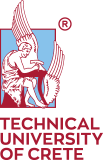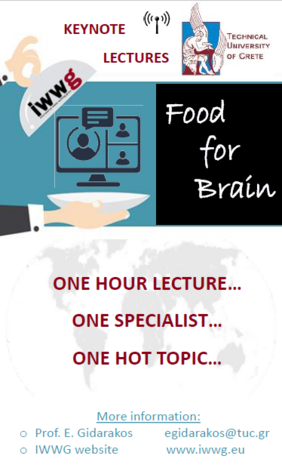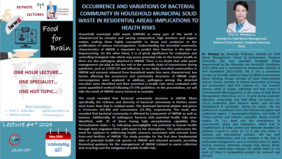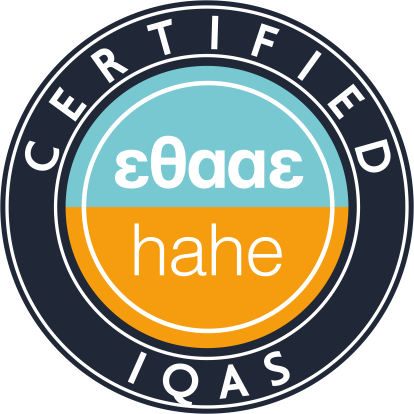Em. Prof. Evangelos Gidarakos from the Technical University of Crete, continues this year the series of online lectures on hot issues of waste management entitled "FOOD FOR BRAIN".
On Wednesday 29th May at 13:00 CET, Prof. Wenjing Lu from the Institute for Solid Waste Management, School of Environment, Tsinghua University (China), as the invited lecturer of "Food for Brain" action for May, will present fundamental data of potential health risk species in HMSW and released aerosols, providing theoretical guidance for the management of HMSW (related to waste collection and recycling) and the mitigation of public health risks.
Anyone interested may participate through the following link: ZOOM link
Title:
Occurrence and Variations of Bacterial Community in Household Municipal Solid Waste in Residential Areas: implications to health risks
Abstract:
Household municipal solid waste (HMSW) in many part of the world is characterized by complex and varying composition, high moisture and organic matter, making them highly susceptible to decay and conducive to the proliferation of various microorganisms. Understanding the microbial community characteristics of HMSW is important to predict their function in the later-on bioprocessing. On the other hand, it is of great significance for evaluation and controlling biological risks which may poses potential risks to the human health as there are also pathogens attached in HMSW. There is no doubt that solid waste management can play as the key role in the secondly chain of transmission during pandemic, such as COVID-19 and influenza. In our study, microbial communities in HMSW and aerosols released from household waste bins were characterized, key factors affecting the occurrence and community structures of HMSW origin microorganism were analyzed. In addition, pathogens among the detected microbes were identified and their potential in health risks were evaluated with semis-quantified method following US-EPA guidelines. In this presentation, we will take the result of HMSW source bacteria as example.
The result revealed that bacterial community structure in HMSW. More specifically, the richness and diversity of bacterial community in kitchen waste were lower than that in residual waste. The dominant bacterial phylum and genus is Firmicutes (43.4%) and Leuconostoc (21.4%), respectively. The study also revealed that bacterial community is affected by component of HMSW as well as seasons. Additionally, 42 pathogenic bacteria with potential health risks were identified, with 20 of them having high aerosolization capability (the Aerosolization Index > 1), indicating nonnegligible risk potential to human health through their migration from solid waste to the atmosphere. This underscores the need for vigilance in addressing health concerns associated with aerosols from front-end facilities of HMSW. The study provides for the first time fundamental data of potential health risk species in HMSW and released aerosols, providing theoretical guidance for the management of HMSW (related to waste collection and recycling) and the mitigation of public health risks.
Short Bio
Dr. Wenjing Lu, Associate Professor, Institute for Solid Waste Management, School of Environment, Tsinghua University. She was awarded Humboldt fellow (experienced) by the Alexander von Humboldt Foundation (2015-2016) and is nominated as Ambassador Scientist of AvH Foundation (2021-2026). She is also a committee member of Scientific Advisory Panel of IWWG (International Waste Working Group), member of China Environmental Science Society, member of Chinese Association of Energy and Environment High-Tech Industry etc..
Her research interest relate to Insight, Utilization and Risk control of Environmental Microorganisms in the scope of Solid Waste Management. Main focus are: C, N cycle during anaerobic digestion, composting and land filling, bio-refinery for CH4+X production from biomass waste, and bio-risks identification & prevention. During her career, she has authored or co-authored more than 200 journal papers and conference papers, 7 monographs/chapters, and holds 19 Chinese patents and software copyrights. Beside scientific studies, Dr Lu’s work also has contributions to government’s policy and regulations, which lead to establishment of index system and National Standard for pollution Control in China. Dr. Lu is also very active in national and international societies. She has built contacts/collaborations with top scientists in the field of solid waste management, such as scientists from US, Japan, Austria, Germany, Denmark, Canada, Italy, Russia, Brazil, etc. These relationships enlarges her global vision on the basis of China in comparative analysis for research and practice.

















